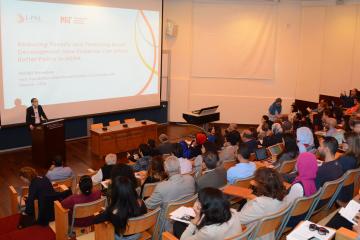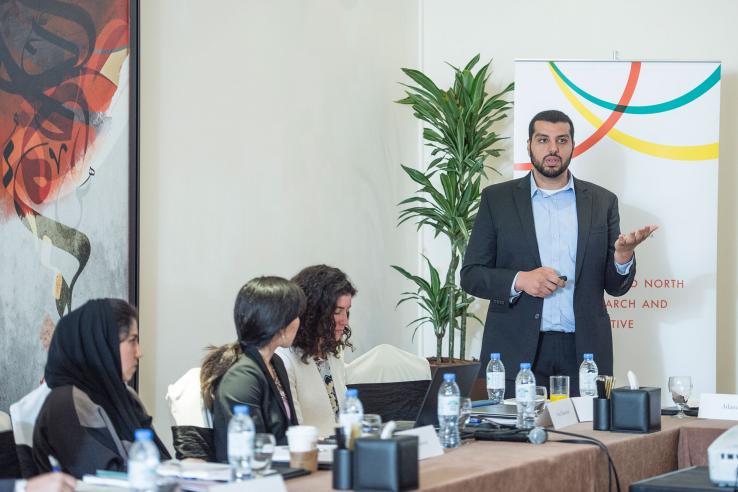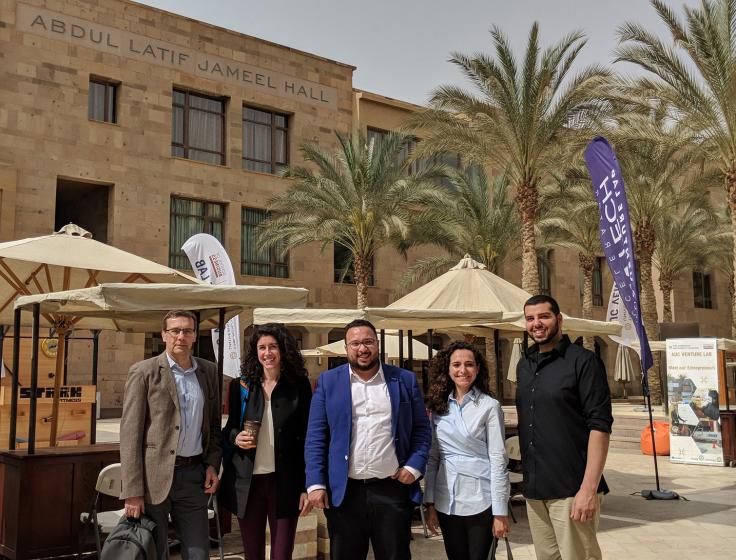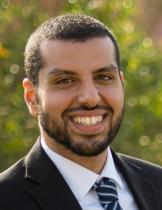
Affiliate spotlight: Adam Osman on expanding opportunities for evaluation in the MENA region

Adam Osman is an assistant professor of economics at the University of Illinois at Urbana-Champaign and co-Scientific Director of J-PAL’s Middle East and North Africa initiative. He has been a J-PAL affiliate since 2016.
How did you become interested in development economics?
I actually didn't know much about the field until after I got into graduate school. My exposure to it beforehand had been minimal and mostly from the older economic growth literature. For as long as I could remember I always had an interest in understanding why the poor were poor and what could be done to help them, but I thought this was one of those things people thought about but didn't actually study.
When I started learning about the use of experiments to help us improve our understanding of what works and what doesn't in development, I was hooked. More than ten years later I still can't imagine spending my time doing anything else.
What is a current research project that you're particularly excited about?
We've just started collecting one-year follow up data for a project that looks at the impacts of different types of capital assistance for microenterprises in Egypt.
Among a large sample of individuals who had applied for a microloan, we were able to randomize them into one of four groups at the individual level. Some individuals got the loan they applied for, while others got the full amount as a cash grant, and others received an in-kind grant of the items they initially indicated they would use their loan on. (The fourth group served as the comparison group.)
We are collecting very short-term outcome data (two to three weeks after capital disbursement) in addition to one-year follow up data. The short-term data will allow us to directly estimate how the different types of capital assistance impacted investment decisions, while the long term data will allow us to map out how those investment decisions worked out over time.
We still have a lot more data collection and analysis to do here, but I'm excited to see what we find.
What is your dream evaluation? (It doesn't have to be feasible!)
Every year my beliefs about what is feasible to accomplish with RCTs expand. It's a great time for innovation, new ideas and new lessons.
I don't have a "dream evaluation" per se, but I do dream about the development of new techniques that would let us increase statistical power for minimal cost. I would love to be able to run RCTs with many more treatment arms without needing to increase sample size or collect tons more data. I always have way more questions that I'd like answers to than I have treatment arms!
What has been particularly valuable advice that you’ve received in your career?
One valuable piece of advice I have received is about the importance of saying "No."
New projects are usually so much more exciting to think about and work on than projects that have been going on for a while. The temptation to dive into new projects before making sure that the older projects are completed and published is strong, and it's important to say "No" as often as you can manage to new things to allow yourself to focus on finishing up other ongoing work. I try to remind myself of this often.
Any other news you'd like to share with us?
I'll take this opportunity to plug all the hard work coming from J-PAL’s Middle East and North Africa team: Alison Fahey, Yuen Ho, AbdelRahman Nagy, Rob Rogers, and Nour Shammout, in addition to my co-Scientific Director Bruno Crépon.

We've been working for a few years to build relationships in the region and lay the groundwork to help support those who want to run impact evaluations. There is so much demand from policymakers and NGOs for evidence-based policy and relatively little being done in comparison to other areas of the world.
We still have a lot of work to do before the region is able to catch up with the rest of the world in the number of randomized evaluations taking place there, but I'm optimistic that there will be lots of great work coming out of the MENA region in the future.
